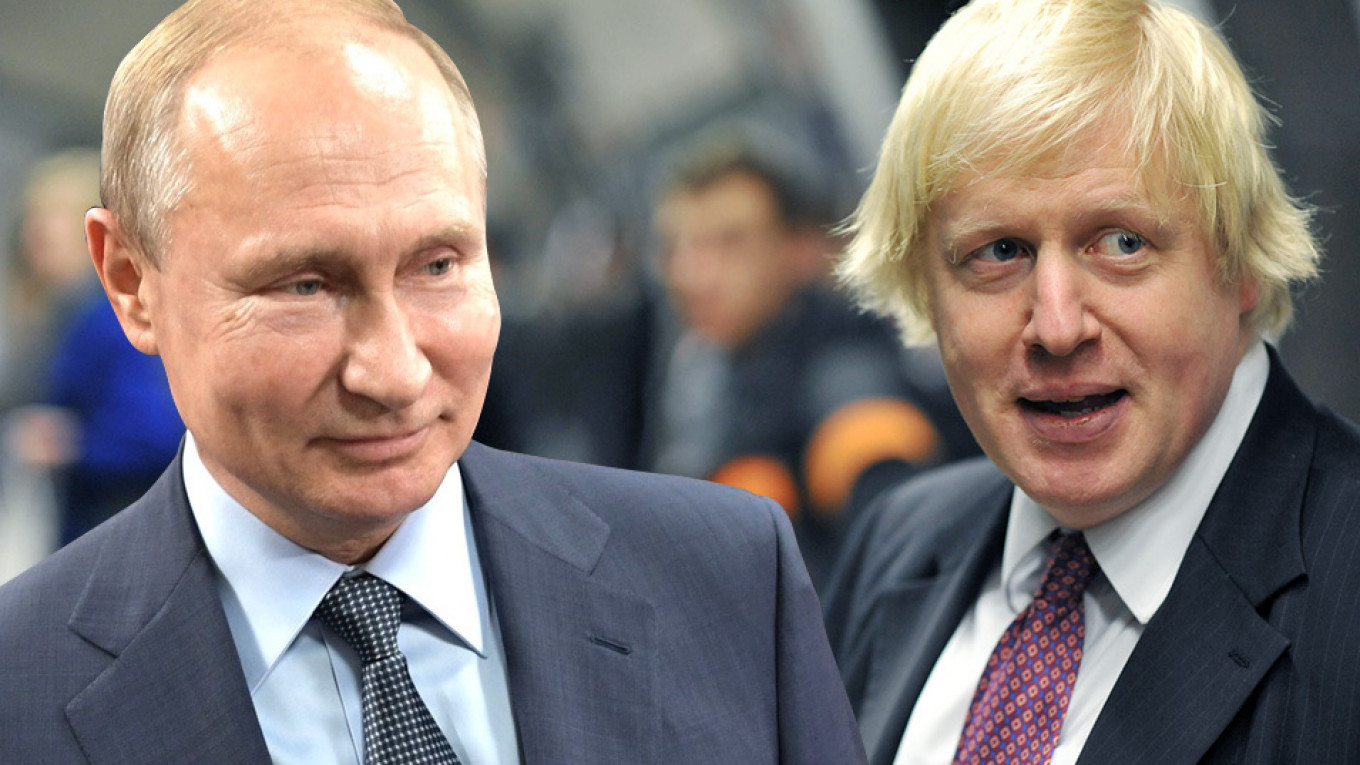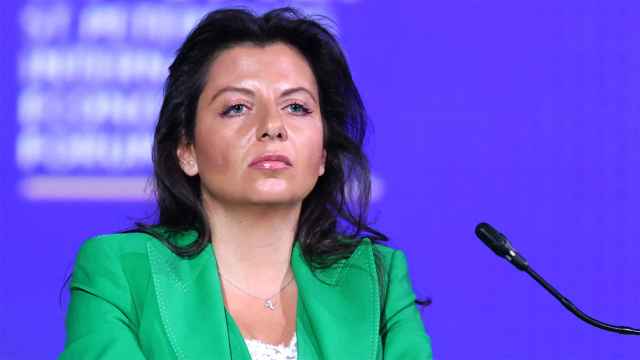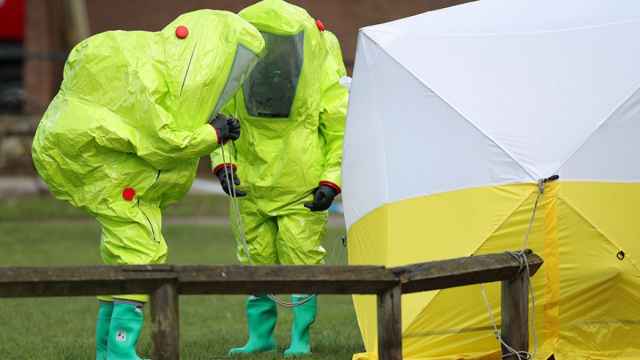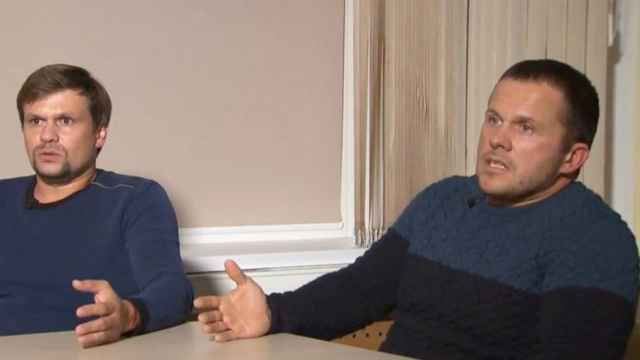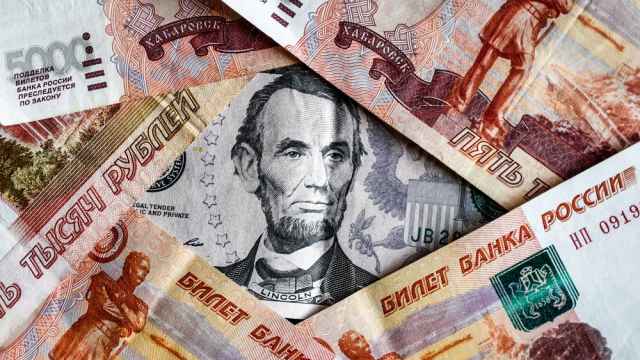Boris Johnson may have in the past called Vladimir Putin a “ruthless and manipulative tyrant” (which is presumably a criticism in today’s political world?), but his Russian counterpart congratulated him on his election and suggested that “it would be in the interests of our countries and peoples to develop relations in various spheres.”
How, though, could any improvement in relations be accomplished without blessing the Kremlin’s authoritarianism at home and adventurism abroad?
Of course, Johnson has a lot on his plate, even before the snap general election that is looming. When he was Foreign Secretary, before the Skripal incident, he visited Moscow. Since, though, he has said that he “made the classic, classic mistake of thinking it was possible to have a 'reset' with Russia."
So relations with Moscow will not be a priority. But in due course, it is inevitable that Boris and Vladimir will meet at some summit, and more to the point, the wheels of state will continue to turn. One way or another, Johnson, his new Foreign Secretary Dominic Raab, and the rest of this government will have to shape a Russia policy, whether through design or simply by inaction. Here, then, are some thoughts on how to go about it.
First of all, a new government does not mean a new reality. That Johnson was not PM when Putin annexed Crimea, covered up the MH17 shootdown, tried to have Skripal assassinated and generally launched a political war on the West, does not mean that none of that still matters. The Kremlin relies precisely on its belief that the West is short of memory and stamina, and that any short-term turbulence can simply be waited out.
The usual mantra — that Moscow must not be allowed to believe “business as usual” can return without it having to make serious policy changes — has to inform all aspects of British policy. One can have a serious debate as to whether the Western sanctions regime really is all that effective, but lifting them now would only embolden Putin.
For Britain, a key issue will be continuing to toughen its position on dirty Russian money and the rich Russians who use it to buy themselves an easy life in the U.K. A ‘hard Brexit’ will likely mean serious economic woes for Britain, and the temptation to make it easier, not harder, for all and any moneys to come into the City of London financial center (as happened after the 2008 crisis).
This is a temptation which must be resisted, not least because money buys influence. Until the U.K. has much more robust defenses against the political effects of “dark money” (and not just from Russia) then this is an obvious vulnerability.
There has to be a balance, though. Not every Russian — not even rich Russian — is a devotee of Putin’s. If anything, the tide is actually turning against him. Yet the promise of a “Global Britain” should mean not just that those rich Russians genuinely trying to make money within the law are welcome in the U.K., but the honest poor ones, too.
At present, it is brutally hard for ordinary Russians to travel to the U.K., whether scholars attending a conference or tourists eager to see the country’s glories. The irony is that the Russians Britain really needs to worry about — the spies, assassins, gangsters, propagandists and kleptocrats — tend to come here on diplomatic passports, forged documents or golden investor visas.
A hard line with the Kremlin ought to be matched by a charm offensive toward ordinary Russians. Relax visa requirements without demanding reciprocity; offer up bursaries for talented young Russians to study in the best universities in the world; take every opportunity to undermine Putin’s attempts to legitimate his regime as a necessary bulwark against a hostile and hateful world.
Britain has, after all, still considerable soft power in Russia, from its arts to its footballers. Even now that the Kremlin is obviously doing what it can to undermine this, the experience of contact — consider how Russian perceptions of outsiders changed after the World Cup there — is that it works to our advantage.
So much, so touchy-feely. Making ordinary Russians feel that the U.K. is not their enemy may help shape relations more positively in the long term, but what will help in the short? Given that Putin and his circle seem genuinely to believe they are locked in an existential political struggle with the West, we are unlikely to make friends with them.
Instead, we need to gain their respect, something that has largely been lacking of late. And for that matter, we need to show it, too: you can have serious differences with another country without descending into playground language, something publicity-hungry and headline-hunting politicians should note. This means consistency and resolution — and the resources to know what the Russians are doing and to have credible responses.
Even at a time of resource stringency and other priorities, this demands continued and ideally expanded budgets for the various intelligence and law-enforcement agencies on the front line of the hidden conflict: not just the spies of MI6 and the other espionage services and MI5’s counter-spies, but the National Crime Agency, which is hunting that dirty money.
Of course, nowadays security is collaborative. The Kremlin is eagerly anticipating the further dislocations within the West likely to follow Brexit. This is undoubtedly a problem, but perhaps also an opportunity. NATO will survive, and in any case, there is no serious military threat from Russia.
The European Union, though, has proven of limited real success in resisting Russian political war. The best recent example of an effective counter-attack was the multinational campaign of expulsions that followed the Skripal affair — during Johnson’s time as Foreign Secretary. This kind of solidarity against non-military assaults has been singularly lacking in the past and stretched well beyond the EU or NATO. A truly “Global Britain” need not be confined by existing structures and could look to forging wider “coalitions of the concerned.”
And where appropriate, Russia can also be approached again as a security partner. It may well balk at, for example, protecting convoys against its kinda-ally Iran in the Straits of Hormuz, but simply being invited to join speaks to Moscow’s hunger to be treated as a serious power, without undermining British interests.
Some of this means spending money; some means turning money away; some means using political capital and capacity. But none of this requires a huge investment of resources or a dramatic overhaul of policy. In short, it is entirely do-able, even for a government with many other, more exigent priorities. And it could not only make relations with Russia, if not better, at least more stable, it could also show that Brexit Britain really is willing and able to play a serious role on the world stage.
A Message from The Moscow Times:
Dear readers,
We are facing unprecedented challenges. Russia's Prosecutor General's Office has designated The Moscow Times as an "undesirable" organization, criminalizing our work and putting our staff at risk of prosecution. This follows our earlier unjust labeling as a "foreign agent."
These actions are direct attempts to silence independent journalism in Russia. The authorities claim our work "discredits the decisions of the Russian leadership." We see things differently: we strive to provide accurate, unbiased reporting on Russia.
We, the journalists of The Moscow Times, refuse to be silenced. But to continue our work, we need your help.
Your support, no matter how small, makes a world of difference. If you can, please support us monthly starting from just $2. It's quick to set up, and every contribution makes a significant impact.
By supporting The Moscow Times, you're defending open, independent journalism in the face of repression. Thank you for standing with us.
Remind me later.



